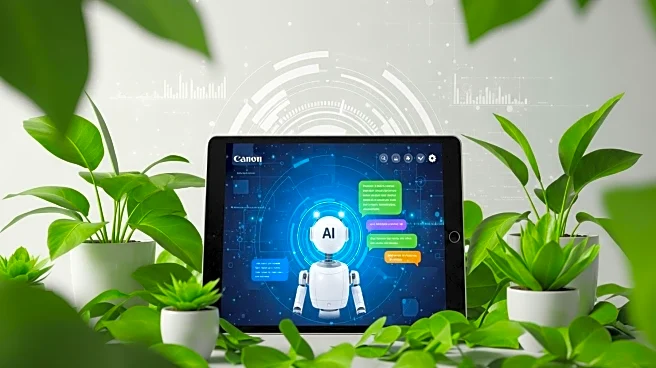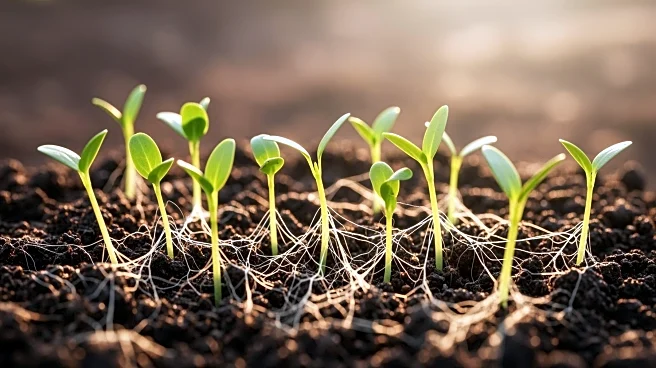What's Happening?
The University of Sharjah, in collaboration with IBM, has introduced an AI chatbot named Welly, integrated with IBM's watsonx, to enhance sustainable farming practices in the UAE and the broader MENA region. The chatbot, part of the My FarmWell mobile app, offers multilingual support in English and Arabic, providing real-time guidance on irrigation strategies and well monitoring. This initiative aims to improve water efficiency and food security by delivering localized, expert knowledge to farmers. The app includes features such as a Wells Map for visual water tracking and a water consumption calculator, developed with input from partners like the Abu Dhabi Agriculture & Food Safety Authority.
Why It's Important?
This development is significant as it addresses critical challenges in sustainable agriculture, such as water scarcity and climate resilience. By leveraging AI technology, the initiative supports farmers in making informed decisions that optimize resource use and enhance productivity. The collaboration between the University of Sharjah and IBM exemplifies how academic research and technological innovation can contribute to regional goals for food security and environmental sustainability. The project aligns with the UAE's commitment to advancing sustainable agricultural practices and tackling climate change impacts.
What's Next?
The My FarmWell app, now featuring the watsonx-integrated chatbot, is available for download on Android and iOS platforms. As the initiative progresses, further enhancements and partnerships may be explored to expand the app's capabilities and reach. Stakeholders, including government agencies and agricultural organizations, are likely to monitor the app's impact on farming practices and consider additional support or collaboration opportunities to maximize its benefits.
Beyond the Headlines
The integration of AI in agriculture not only aids in immediate resource management but also sets a precedent for future technological applications in farming. Ethical considerations regarding data privacy and the equitable distribution of technological benefits may arise as the app gains traction. Long-term, this initiative could influence policy decisions related to agricultural technology adoption and environmental conservation strategies.










